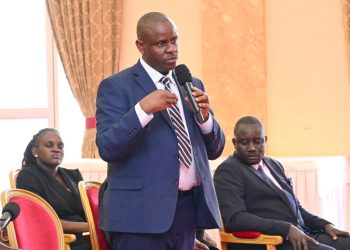President Yoweri Museveni and his Tanzanian counterpart, John Pombe Magufuli, disagreed Friday on the East African Crude Oil Pipeline (EACOP) Project, whose future hangs in balance following the withdrawal of key oil companies.
While President Magufuli wants the Final Investment Decision (FID) urgently signed to pave way for the construction of the EACOP and commencement of oil production, President Museveni seems not to be under any pressure to sign until a good deal is negotiated for Uganda.
Stakeholders were expecting to have the FID signed by the end of this year, but the current snag is expected to lead to further delay in commercial production, which has caused panic in the region. The FID, which had been expected to take place last year, was delayed due to the failure of the Government to agree with oil companies on the various taxes and recoverable costs issue after Tullow Oil sold its interest to Total E&P and CNOOC.
The delays resulted in the expiry of the August 29 deadline for Tullow to reduce its shareholding of Lake Albert project from 33.3% to just 11%. Speaking at first Uganda- Tanzania Business Forum at Julius Nyerere International Conference Centre in Dar-es-Salaam on Friday, Magufuli expressed concern over the current state of affairs, appealing to Museveni to be flexible during negotiations.
BIGGER PICTURE
Magufuli said officials at the Uganda Revenue Authority (URA) were to blame for the slow take-off of the project by insisting on capital gains tax.
“Why should we stop oil production because of the failure to agree on money sharing? Sacrifice some dollars in the form of tax so that construction goes on and jobs are created. That pipeline should be called the Kaguta pipeline,” Magufuli told his counterpart.
“In business, you cannot get super profits, you have to lose a little so that you get something bigger in the future. Look at the bigger picture. Why should bureaucrats delay you? Maybe you are too soft on them; you may need to get tough.”
Work on the 1440km project, the world’s longest heated crude oil pipeline linking Hoima in Uganda to Tanga in Dar-es-Salaam, was effectively halted after Tullow Oil’s plan to sell a stake in the project to France’s Total and China’s CNOOC was called off last week.
No worries
In apparent retort, President Museveni downplayed fears about the collapse of the pipeline project, insisting that it was under control.
“Oil has been here for two million years. It will come out. It is under the control of the government of Uganda,” he said.
The pipeline is one of the major infrastructure outlay that the government has committed to putting in place before commercial oil production starts in order to guarantee that the country gets good returns. Museveni stressed that Uganda was not in a rush to extract oil and mineral resources to fund consumption budgets.
“We will never use oil money for consumption and salaries. These are resources that are finite. We will use the resource to create base capacity for the economy,” he stated.
The Lake Albert project has over 1.5 billion barrels of discovered recoverable resources and is expected to produce over 230,000 barrels of oil per day at peak production. Proceeds from oil resources, Museveni told delegates at the forum, will be used to finance projects, such as railways, science and technology parks, and education.
The Uganda-Tanzania Business Forum is a platform for businesses to share their experiences, explore investment opportunities across the borders, create a business to business networks and to identify and discuss challenges before the heads of state and other policy-makers.































































